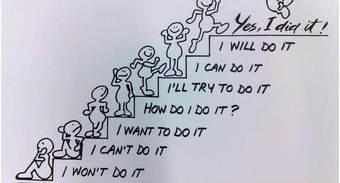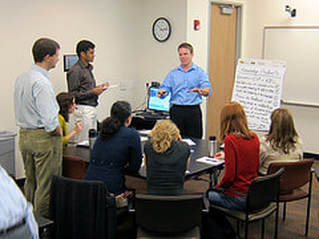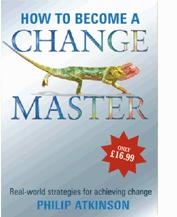
You get the quality of staff you deserve
If you are serious about bringing about significant, lasting and sustainable change, you have to be able to smooth the path and support the key people, usually the senior management group, to take some thoughtful risks, while at the same time removing any fear that if they fail, they will be punished in some way.
Invest in your people
If you don’t invest in your top people how can you expect them to lead the process of change. They cannot acquire these change skills and mindset by osmosis, through YouTube, reading a book, or attending the infrequent and ill-designed ‘catch all’ training course.
Change or face the Consequences
In recent times I have worked with several organisations that have had no alternative but to bite the bullet, restructure, improve core systems and processes or face the consequences. But how do you do that when management groups have never been exposed to real change? – especially if they have been protected, for instance if they reside in the public sector.
Change is not delivered by Magic
If management groups have never had to bring about successful change, how can we expect them to deliver that change? It’s not like they can magic it from somewhere or quickly develop superior change skills after having a lifetime of under investment in their professional and personal development.
Transactional rather than transformational leaders
Critical to any change process is the ability to lead change. Without leadership, the organisation will continue on its current path. At best, many management teams have been equipped with what we call transactional skills to become better at what they do, which is managing operations functions and silos – usually in the short term. What is really needed is equipping all your key people with transformational change skills which enable them to start to think strategically and recognize that their role is to focus on improvement and operating at the next level.
You have to move them through the Mindset of ….
I won’t do it…to
I cannot do it… to
I want to do it…to
How do I do it…to
I’ll try to do it.. to
I can do it…to
I will do it… to
Yes, I did it…
To find out more about how you can develop the core competency of organisational change, you can access this recently published article from the Chartered Institute of Management Services. Reading through this will give you the confidence to move staff from…I won’t…….. to “I did it”.
Please email me to discuss how you can make this work in the real world [email protected]
| atkinson-change_as_a_core_competency_autumn_2017_ms_journal.pdf |


 RSS Feed
RSS Feed

